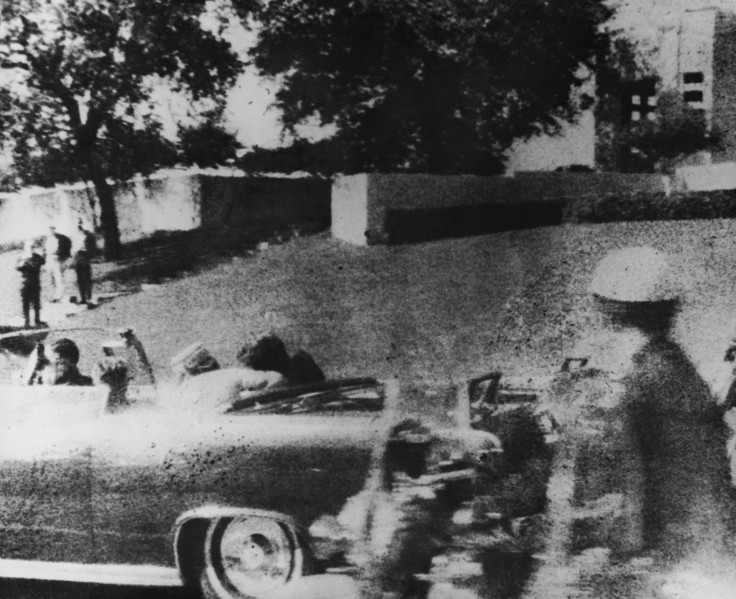JFK Files Released: Read All The Declassified Assassination Documents Here

The National Archives released a highly anticipated trove of documents Thursday containing 2,891 files related to the assassination of former President John F. Kennedy after President Donald Trump ordered for them to be made public Thursday. However, Trump withheld the release of thousands of other additional papers owing to protests by the CIA and FBI.
Trump tweeted Wednesday announcing the long-awaited release of the documents.
The documents were posted online by the National Archives and Records Administration around 7:30 p.m. EDT Thursday. These files represent a treasure trove for investigators, historians and conspiracy theorists who have spent more than half a century in search of clues to what really happened in Dallas, Texas, on the day of the assassination, Nov. 22, 1963.
To read the files, you can visit this page on the National Archives website.
In 1992, after Oliver Stone’s film of the assassination and investigation entitled “JFK,” Congress passed an act instructing the National Archives to collect information about the former president's death, which were scheduled to be released within 25 years. The act set the deadline of Oct. 26, 2017, for everything to be published.
On July 24, 2017, 3,810 documents related to the incident were released on the National Archive's website. Also, majority of the records relating to the incident, about 88 percent, have been available to the public since the late 1990s.
The National Archives posted the documents in pdf format, and they can be downloaded from its website.
The latest release contains more information about Kennedy's killer Lee Harvey Oswald and his life in the months leading up to the assassination in Dallas, Texas.
Trump held back the release of some documents, at least temporarily, as he approved requests, mostly by the FBI and CIA to keep the unreleased documents hidden "because of the national security, law enforcement and foreign affairs concerns," a White House official told the Guardian.
"Based on requests from executive offices and agencies the President has allowed the temporary withholding of certain information that would harm national security, law enforcement, or foreign affairs," the National Archives wrote in its press release Thursday.
"The President also ordered agencies to re-review their proposed redactions and only redact information in the rarest of circumstances where its withholding 'is made necessary by an identifiable harm to military defence, intelligence operations, law enforcement, or conduct of foreign relations; and the identifiable harm is of such gravity that it outweighs the public interest in disclosure.' These instructions will allow the National Archives to release as much information as possible by the end of the temporary certification period on April 26, 2018," the press release added.
© Copyright IBTimes 2024. All rights reserved.












